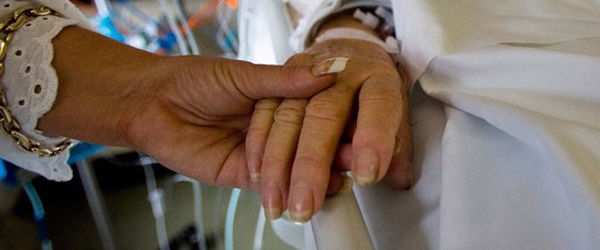Lighthearted observation aside, his words carry some truth. As the secretary of the United States Jesuit Conference’s Social and International Ministries, Father Greene is constantly traveling nationwide and internationally, promoting national and international ministry projects, and encouraging the younger generations to consider joining the religious community that has made education and social justice its mission.Advocacy and service also make a big percentage of the Jesuits’ mission. During a recent workshop at the Jesuit Novitiate House in Culver City, Father Greene urged a group of more than 20 novices of the California Province to add one more key component: accompaniment. “The social dimension is all part of our apostolates,” said Father Greene, a former assistant district attorney, with expertise in immigration law and human rights. “What does justice mean? What does it look like?” Then he offered: “We come to know it by staying rooted and not just doing service and advocacy, but by accompanying people, by being with people in their suffering, listening to them, sharing their concerns, and acting.”“We come to know justice by staying rooted and not just doing service and advocacy, but by accompanying people, by being with people in their suffering, listening to them, sharing their concerns, and acting.”With a three-person staff in his Washington, D.C., office, Father Greene oversees national and international advocacy, focusing on areas or issues that are evaluated with help from the network of Jesuit institutions in the country. The issues currently addressed include immigration, domestic poverty, human rights violations in Honduras, as well as corporate dialogues with mining companies, private prisons and agro-processors.The office also participates in the Jesuits’ internal governance structures and Father Greene attends meetings of the social sector with the provinces in the United States and internationally. The office also functions as a liaison between several Ignatian entities, such as the Jesuit Volunteer Corps, Ignatian Volunteer Corps, Ignatian Solidarity Network, Jesuit Refugee Service and the U.S. Catholic Mission Association; and coordinates the National Jesuit Committee on Investor Responsibility, advocating and promoting corporate behavior consistent with Catholic Social teaching.“It costs a lot of money to work with the poor,” Father Greene told the novices while explaining his work and the importance of planning after setting a vision. “You need to swim upstream at times to look and address structural causes of poverty and exclusion wisely.”He challenged the young men to think more as an international society “and to see all the good work we’re doing regardless of the reduction in numbers” of vocations.Father Greene found his vocation after five years of practicing law. He decided one day to take a road trip to Alaska; he never arrived, but instead stayed two years in Wyoming where he “rediscovered faith” and became actively involved in work with the poor, which eventually led him to joining the Society of Jesus.Today, as an immigration advocate, he has addressed the U.S. Congress, promotes the “impressive” work done at the Mexican border by the Jesuit-run Kino Border Initiative, and has experienced firsthand the work done by Jesuits in other borders in conflict (Spain/Morocco; Dominican Republic/Haiti).He chooses to stay optimistic, he said, regarding the discussion in the U.S. on a comprehensive immigration reform.“Rallies or marches can help create a sense of urgency,” he said. “The polls clearly show that the majority of people in the U.S. are in favor of reform and the Senate understands this, but House districts are drawn differently and narrow interests are obstructing reform.”For more information about the Jesuits in the U.S., visit www.jesuit.org.{gallery width=100 height=100}gallery/2013/1115/jesuitgreene/{/gallery}

